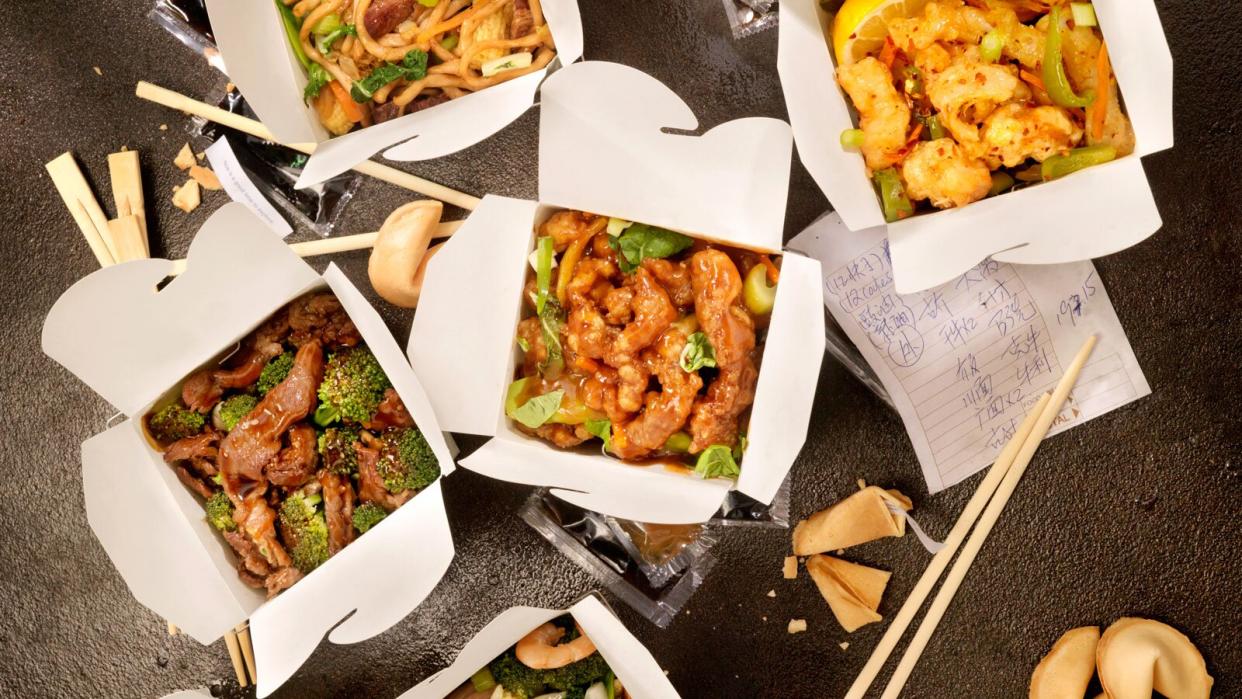Does Ordering Delivery Make You Happier?

Lauri Patterson / Getty Images
I love ordering delivery. Outside the fact that the meals sent to my door are infinitely more awesome than anything I would cook for myself, ordering food also cuts out a lot of unnecessary work in my life: going grocery shopping, cooking, scrubbing insanely heavy Le Creuset pots and pans. All that time adds up. Meanwhile, my wife prefers to cook. But a new study says that my skipping out on meal preparation might make me a happier person.
According to the title of a recent study published in the journal Proceedings of the National Academy of Sciences, "Buying time promotes happiness." The idea is simple: Spending money on things that save time makes people happier than spending money on material goods. "Around the world, increases in wealth have produced an unintended consequence: a rising sense of time scarcity," the authors write. "We provide evidence that using money to buy time can provide a buffer against this time famine, thereby promoting happiness." Turns out, despite everything you've ever heard, it seems money can buy happiness.
The study looked at "large, diverse samples" from four countries: the United States, Canada, Denmark and The Netherlands. Participants were specifically asked "about whether—and how much—money they spent each month to increase their free time by paying someone else to complete unenjoyable daily tasks." Though the researchers don't specifically speak to the emotional benefits of ordering from GrubHub, it does cite cooking, shopping and cleaning as three of the household chores that people often look to pay their way out of. And as mentioned above, those three things can all be alleviated by ordering in. In the end, the results were that "buying time was linked to greater life satisfaction" regardless of income.
"I think our research actually flies in the face of the preconception that time-saving services are just for rich people," Elizabeth Dunn, professor of psychology at the University of British Columbia and a co-author of the study, told CNN. "Sometimes when people imagine time-saving services maybe what they're picturing is a house keeper, butler, and a gardener … but what we're talking about is just spending $40 makes a difference." That's what I would call the perfect budget for a delivery dinner.
Of course, the study does specifically ask about getting others to complete "unenjoyable" tasks. My wife, like many people, actually enjoys cooking – so for her, getting delivery might not actually make her any happier at all. Let's just say that she's found a loophole.

